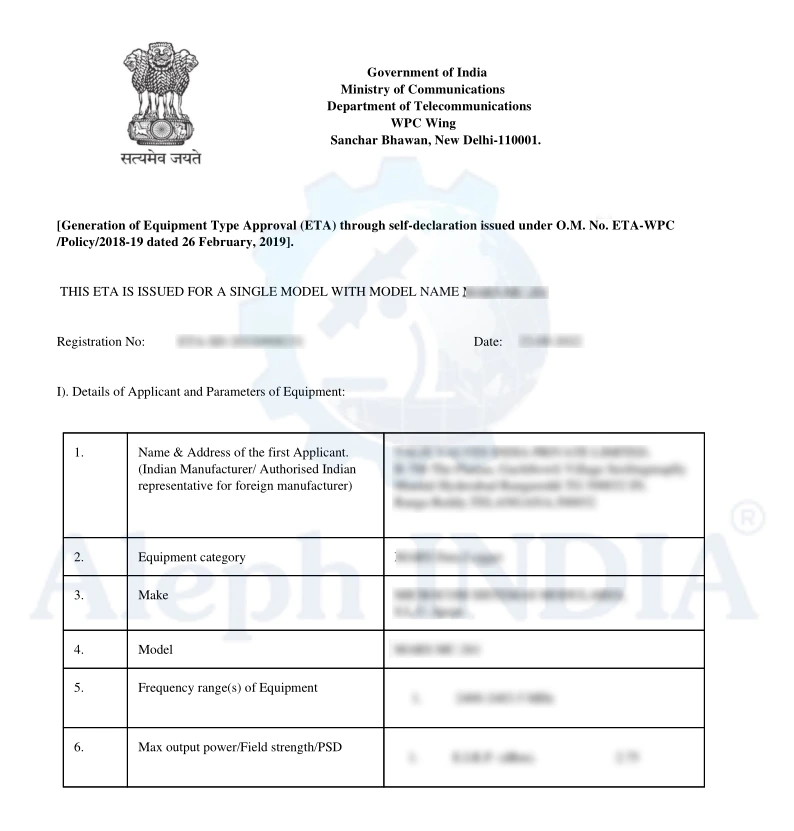WPC/ETA Approval is mandatory for Wireless and Bluetooth devices operating in de-licensed frequency bands in India. The Wireless Planning & Coordination (WPC) wing under the Ministry of Communications grants Equipment Type Approval (ETA) to ensure that devices meet safety and technical standards. This applies to devices like Wi-Fi routers, Bluetooth devices, and other products which are operating with Wi-Fi or Bluetooth frequency range.
Manufacturers (both domestic and foreign), must obtain ETA before importing or selling their products in India. This involves submitting the device for testing and evaluation by an authorized agency. ETA certification is crucial for market access in India and demonstrates compliance with regulations, avoiding potential penalties.
Wireless Planning and Coordination certification (WPC certification) is of 3 types which are as follows:
1. Non-Network License
2. Network Licence
3. Equipment Type Approval (ETA)
Each wireless device operating on the delicate frequency must receive (ETA) approval from the WPC before entering India. ETA required to ensure that wireless products operate on licensed frequency bands and meet human safety regulations. Indian manufacturers can apply for ETA themselves and Foreign manufacturers can apply through an authorized Indian representative.

1. Legal Compliance: The WPC/ETA certification ensures that your electronic products or wireless communication devices comply with the regulatory standards set by the Indian government. This helps avoid legal issues, fines, or confiscation of products.
2. Market Access: It is often a prerequisite to sell electronic and wireless products in India. Without this certification, importing or manufacturing such devices can be restricted.
3. Improved Product Safety and Performance: The certification process ensures that products meet safety, performance, and environmental standards, improving the reliability and quality of the products.
4. Consumer Trust: Having a WPC/ETA certificate can give consumers confidence in the safety and compliance of the products they purchase.
5. Avoiding Penalties: Non-compliance with telecommunication regulations can lead to fines, penalties, or legal consequences, which the certification helps avoid.

